![]() — Home — Business News
— Home — Business News
Weekly Business News from Myanmar
-
Exclusive interview with Mr. Sultan Marenov, CEO and MD of Hayman Capital Co.,Ltd, which provides micro finance services for local small and medium enterprises
Hayman Capital based in Singapore is providing micro finance services for local small and medium enterprises, and they have been doing business in Myanmar for a few years now. Myanmar Business Today (MBT) talked to Mr. Sultan Marenov, the CEO and MD of Hayman Capital Co., Ltd, about the future plans of company, and the loan policies of the government. MBT: First of all, we’d like to know why Hayman Capital chose Myanmar for its operations. SM: One of the main reasons of choosing Myanmar is because the country has been inviting new investments. For some kind of services like ours are given full percent ownership to foreign companies. This is very attractive for foreign investments. Second, there are great opportunities to expand the businesses and people need this kind of service for their activities. If we can meet their needs, it will in turn help us as well as them. That is why we chose Myanmar that offers great opportunities as well as others. Moreover, people want to invest in Myanmar, but don’t have enough knowledge of local consumers. At Hayman Capital, we have international connections, and have studied the market and its needs. We have the advantage of experience. In next five years, we believe Myanmar will have more improvements and economic developments. -
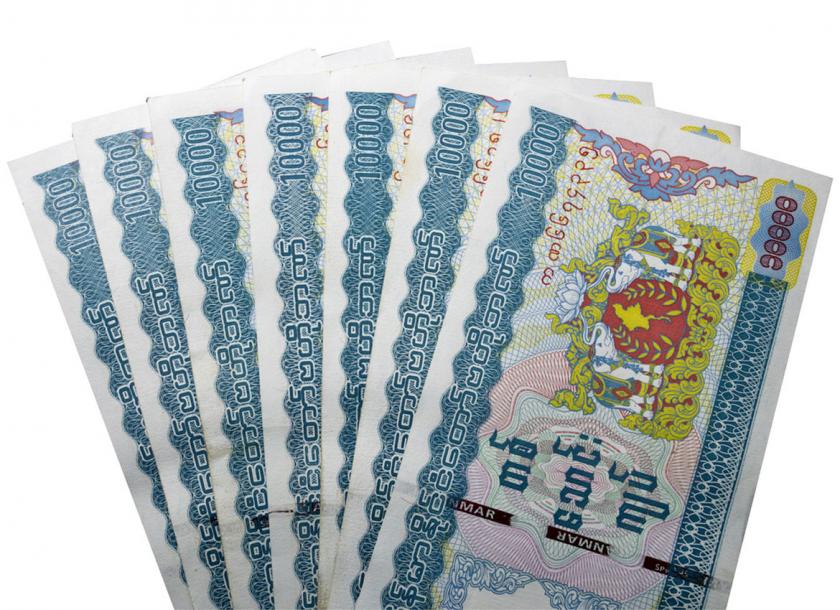
Myanmar Investment Commission (MIC) approved US$ 97 million foreign investment since 1 April 2018: the government has a target of US$ 3 billion foreign investment by October
One company among 18 investments greenlighted by the authorities last month will produce and sell automotives, U Than Aung Kyaw, deputy director general of the Directorate of Investment and Company Administration (DICA), said. The Myanmar Investment Commission (MIC) permitted eight foreign investments and 10 domestic investments on May 29. Among them, MIC-approved businesses include one automotive manufacturing and one plastic manufacturing and the rest are permitted by state and regional investment commissions. “Eight foreign investments approved on May 29 will invest a total of US$33 million and 10 Myanmar-citizen investments will result in over K22 billion,” he said at a press conference held at DICA’s office in Yangon. With MIC’s approval, Shwe Daehan Motors will invest in vehicle sector in Shwepyitha township, Yangon Region. -

More recently, in 2016, it diversified into the education market by acquiring the rights from the UK’s Pearson Education to open English language centres for adults in Myanmar. It opened its English language centre in Yangon last February 2017, spanning
Myanmar Strategic Holdings (MSH), which is listed on the London Stock Exchange, has acquired a Yangon-based security firm for US$2.2 million. MSH’s subsidiary Myanmar Strategic Services exchanged contracts for the acquisition of the entire issued share capital of domestic safety and security services provider Exera by paying $2 million in cash and the remaining $0.2 million through an issue of 7,408 new ordinary shares at a price of $27 per share, according to an announcement from MSH. Exera is a safety and security services provider operating exclusively in Myanmar. Through its 1,000 guards, Exera provides guarding, protective services, transportation, training and risk consulting to a wide range of international and local clients across the country, including World Food Programme, United Nations High Commissioner for Refugees, UNICEF and the EU. The company generated unaudited revenues of approximately $4 million for the year ended March 31, 2018. ‘While mobile payment systems will flourish over time, cash will continue to play a key role in the development of Myanmar’s economy.’ Geoffrey Hamilton, Exera Myanmar -

The Posts and Telecommunications Department (PTD) has published the draft telecommunication tariff directive 2018 to provide more guidance to licensees on PTD’s requirements on tariffs setting and promotion activities with consumers
The draft Telecommunication Tariff Directive 2018, published by the transport ministry’s telecommunications department, is currently in public consultation process until June 30. The Posts and Telecommunications Department (PTD) published the directive for telecom services, which, upon implementation, will provide more guidance to licensees on PTD’s requirements of tariffs setting and promotion activities with consumers. According to law firm VDB Loi, the directive is intended for telecom services provided to individual and small and medium-sized enterprise (SME) end users, which also includes consumer protection measures. It does not apply to wholesale services or individualised services to large enterprises. Licensees have a general transition period of 90 days to implement this directive once it comes into effect. -
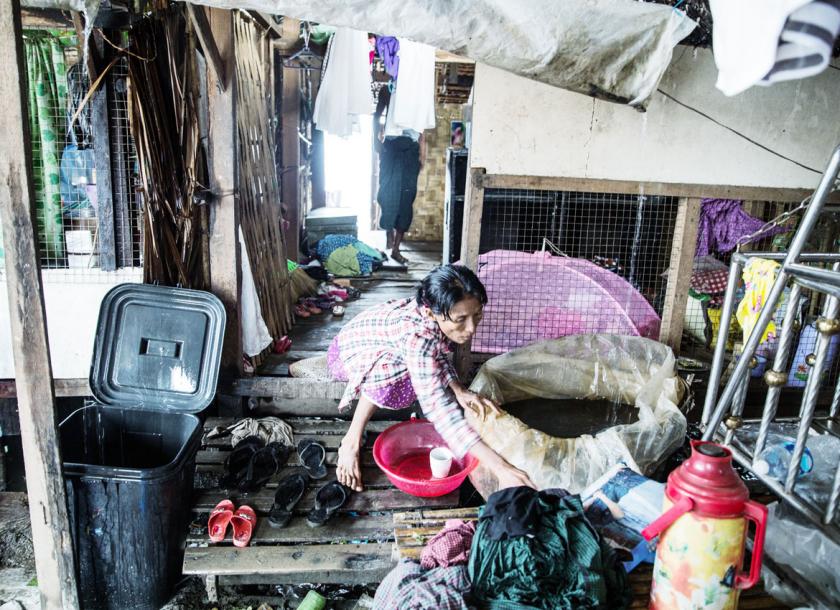
Yangon regional government will remove squatters located in Yangon’s industrial zones to upgrade the infrastructure in those areas
The government will remove squatters located in Yangon’s industrial zones in order to upgrade the infrastructure in those areas, Daw Nilar Kyaw, the regional electricity, industry, transport and communications minister said on May 31 at the regional parliament. Many regional lawmakers discussed the issue of upgrading the industrial zones in parliament. Yangon MP U Zaw Win Maung from Hlaing Thar Yar township tabled the question once more in the legislature. “I want to know how the government is leading the development of industrial zones and how the progress is, and what kind of sectors are supported by the Supervisory Committee for Industrial Sones,” MP U Win Maung remarked. In Yangon Region, there are 29 industrial zones and their development is beleaguered by lack of reliable and secure access to water and electricity, as well as abysmal road conditions. The authorities need to enforce regulations and laws effectively. -
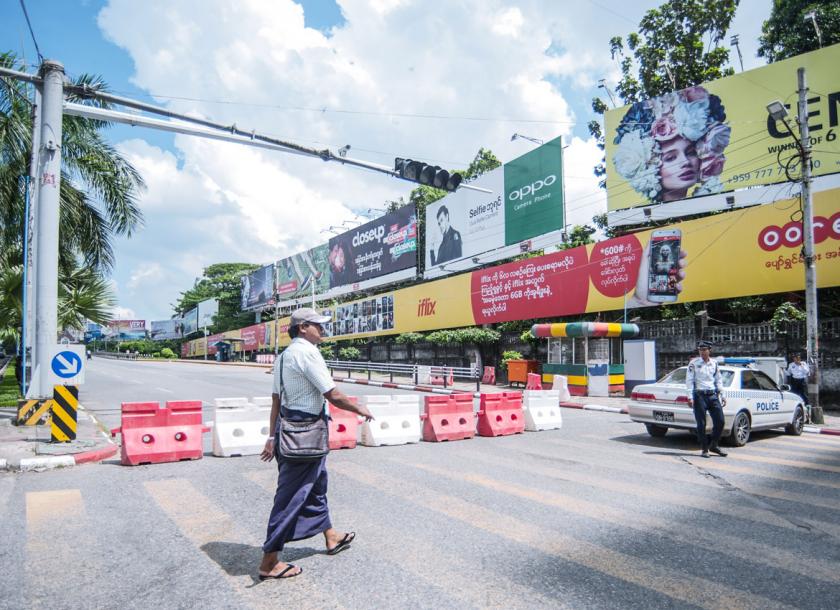
Yangon government authorities should focus on fixing the existing problems before launching new projects to manage the impact of growth
As Yangon’s status as business and logistics hub of Myanmar grows, the regional government, expecting an influx of people and foreign direct investments, has unveiled grand plans to modernise and expand the city. Yet, many of the projects announced have been criticised for being poorly executed and lacking in contingency planning. Despite being allocated the lion’s share of the Union budget for development - K278 billion in 2017-18 - issues such as power outages, lack of affordable homes, traffic congestion and a shortage of basic transport infrastructure remain. As such, the Yangon City Development Committee (YCDC) should focus on fixing the existing problems before launching new projects. Since coming to power in 2016, U Phyo Min Thein, Chief Minister of Yangon, has launched a slew of new projects intended to meet the needs of investors and create jobs for the locals. Since January, these have included a new industrial zone, an elevated ring road and an entire city slated for development across 1,500 sq km of land - twice the size of Singapore - located west of Yangon. -
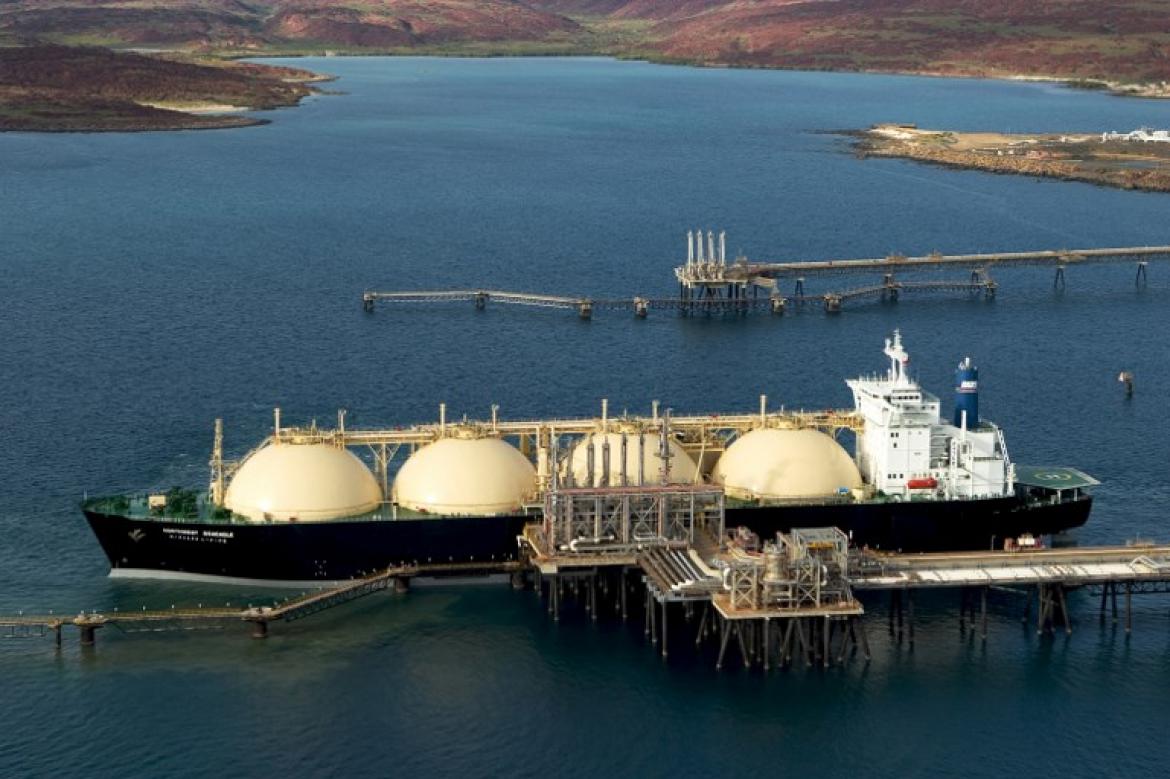
Australian energy firm Woodside continues negotiations on financial terms with the government and targets first gas in 2023 from gas reserves in the A-6 block
YANGON — Australian energy firm Woodside has unveiled plans to develop gas reserves in the A-6 block by connecting the field to the Yadana project and said it is aiming to bring the field online by 2023. The proposed Yadana tieback would include a 230-kilometre pipeline linking a production platform in A-6 with the Yadana platform, which would give the development access to both the Myanmar and Thai markets. But chief executive officer Mr Peter Coleman also said at an investor briefing on May 23 that it was still not certain the project would be commercially viable. The company is understood to be negotiating financial terms with the government, while also conducting exploration and appraisal drilling in A-6 and nearby blocks to better gauge the size of reserves. “We’ll know really pretty much by the end of the year whether we can reach the commerciality threshold,” he said. “We’re close with our Myanmar southern hub concept but we’re not there just yet so we’ll be drilling a combination of appraisal and exploration wells there [this year] ... to get it across the commerciality threshold.” -
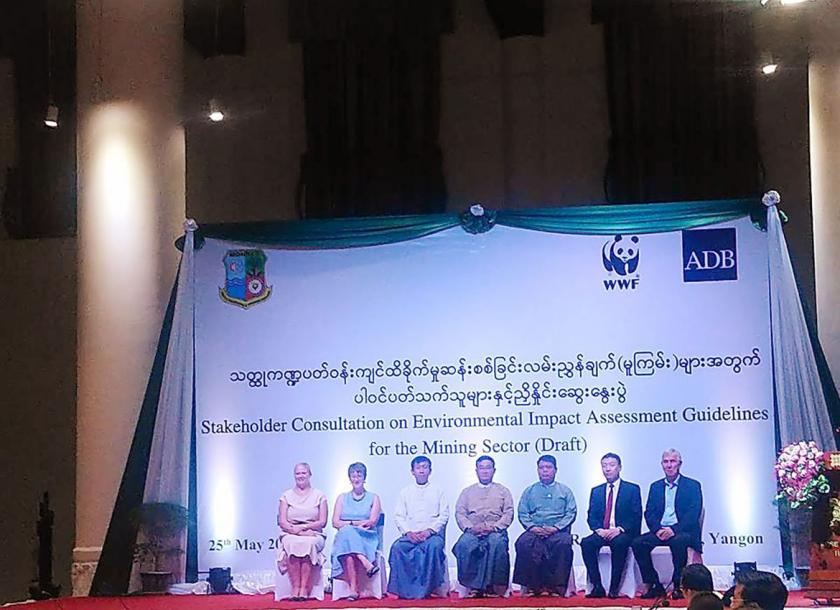
Consultation on draft EIA guidelines for mining sector begins: comments are invited before June 15, 2018
Comments are invited on the two draft documents intended to guide those undertaking Environmental Impact Assessments (EIA), Initial Environment Examinations (IEE) and Environmental Management Plans (EMP) for the mining sector, including gemstones and jade, before June 15. This serves as part of efforts from the Myanmar Centre for Responsible Business (MRCB) to follow up the Mining Sector Wide Impact Assessment (SWIA), which identified environmental and social safeguards and an effective EIA system as fundamental to ensuring better mining practices in Myanmar. The Mining SWIA, developed by MCRB and Danish Institute of Human Rights (DIHR), is intended to encourage a switch to responsible mining in the country. This sector-wide impact assessment (SWIA) on limestone, gold and tin mining in Myanmar analyses the impacts of mining of these commodities on the environment, local communities and workers, looking at both the formal and informal parts of the sector. -
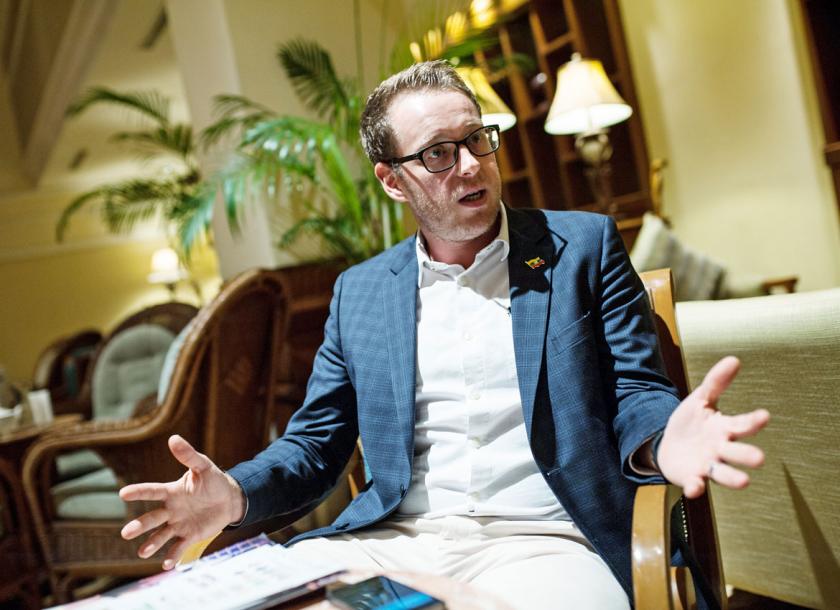
Food and Hotel Myanmar Trade Fair 2018 will be held in Yangon during 6-8 June and will focus on the food, hospitality, retail, and bakery sectors
Food & Hotel Myanmar 2018, an international exhibition for food and hospitality products, is returning for its fifth year to Yangon on June 6-8 at MEP at Mindama Yangon. The event will present products and services from more than 200 leading suppliers and manufacturers coming from 20 countries. In addition, there are also four international pavilions from South Korea, Singapore, Turkey, and the US. In an interview with The Myanmar Times, Fraser Hawkes, general manager of UBM Myanmar which organises the exhibition, told The Myanmar Times that he expects more than 7,500 visitors from the food and hospitality sectors to attend the event. “Food and Hotel Myanmar is focused as a B2B trade exhibition, and it’s for the food, hospitality, retail, and bakery sectors. These industries are obviously growing a lot, not only in Yangon but also throughout the rest of Myanmar linked heavily with tourism but also general consumption and the changing needs of consumers,” Mr Hawkes said. “We’ll also see food service equipment – everything from combi-steamers to ovens, to dishes and cutlery, as well as technology for POS systems,” he went on. Eventually in Myanmar, small and medium restaurants, cafes and tea shops will stop using pan and they will start moving to more technology integrated into their business. -

Myanmar needs a modern banking system that allows business borrowers to use movable assets as collateral to increase access to finance and develop Myanmar’s credit market
A secured transactions reform will help develop Myanmar’s credit market, and subsequently drive the nation’s economy by creating jobs and giving SMEs increased access to finance. SMALL AND MEDIUM enterprises play a central role in Myanmar’s economy, contributing to job creation and gross domestic product. About 90 percent of businesses are considered SMEs. Yet, this sector is in urgent need of financing to grow and create more employment opportunities. This lack of financing affects Myanmar’s key sub-sectors including manufacturing, retail, and services. When the World Bank Group conducted its Myanmar Enterprise Survey 2014, almost 23 percent of small, medium, and large firms listed access to finance as the top constraint. This can be attributed to the fact that most SMEs in Myanmar do not have immovable collaterals – land and buildings – that are acceptable to lenders.
Business News
Copyright © 2014 Business Information Center All Rights Reserved.







